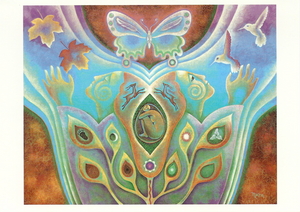 The Yogabliss on-line Moving into Meditation class met this morning. I am so thankful for having this time and space together. We share a sensory experience of our animal senses. Intimately relating to our breath and our bodies can help us find our instinctive place within the living earth. We begin to appreciate the relationships that make our living and loving possible.
The Yogabliss on-line Moving into Meditation class met this morning. I am so thankful for having this time and space together. We share a sensory experience of our animal senses. Intimately relating to our breath and our bodies can help us find our instinctive place within the living earth. We begin to appreciate the relationships that make our living and loving possible.
We drew on the life’s work of poet Mary Oliver – a deeply empathic guide to our natural world. She wrote her poems while hiking fields and shorelines notebook in hand. Her words invited readers to experience nature with our imagination and our senses. She called on us to “find our place in the family of things.” In her intimate On Being interview, Listening to the World, she talked about how nature and poetry saved her life.
David Abram, a cultural ecologist and philosopher, affirms this call of the wild. He reminds us of our intimate relationship to the more-than-human world which he refers to as “the commonwealth of breath.” Like Mary, David enlivens the magic and mystery of our sensual experience of our breath, our bodies and our world.
Both of these artists and thinkers inspire deep appreciation and love of life. They help us understand our interdependence which is so central to mindfulness as a spiritual practice.
Relaxed Reflection
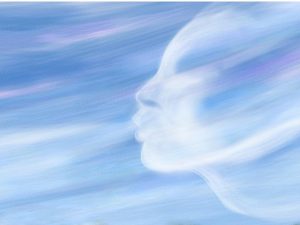 We are breathing beings. Breathing keeps us alive. Breathing enables us to speak. Our speech is “nothing other than shaped breath.” We speak after inhaling this invisible layer of air. As we breathe out we shape it with our tongue and our lips, our palate . . . we let it vibrate folds in our throat and we sound our words out into the world. We speak with our out-breath . . . We touch the world with our speech.
We are breathing beings. Breathing keeps us alive. Breathing enables us to speak. Our speech is “nothing other than shaped breath.” We speak after inhaling this invisible layer of air. As we breathe out we shape it with our tongue and our lips, our palate . . . we let it vibrate folds in our throat and we sound our words out into the world. We speak with our out-breath . . . We touch the world with our speech.
In his Emergence Magazine Interview, The Ecology of Perception, cultural ecologist and philosopher, David Abram describes the magical relationships we sustain with the breath.
And so it is recognized by oral traditions the world over that speech is shaped breath and that it is the breath that is the air that is carrying my words to your ears, or your 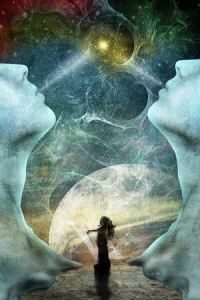 words to my ears; that is, the air, this invisible mystery, the medium in which we are bodily immersed, is the very medium of meaning. It’s where all meaning lives.
words to my ears; that is, the air, this invisible mystery, the medium in which we are bodily immersed, is the very medium of meaning. It’s where all meaning lives.
Even the voices of our ancestors, once they’ve passed on, still linger right here in the air. It’s the very place of the spirits. It is this most magical element, because we see that we cannot act, we cannot speak, or even think without continually imbibing this invisible substance. And so, the air is like the mystery of mysteries . . .
Right now, we can reflect on our own experience with mystery . . . how we have been touched by words born and carried on the breath. . . . We can recall a time when we’ve been deeply moved by a whisper, a conversation . . . when we’ve found meaning in a poem, a song or a story . . . What words have we spoken that are worthy of the breath?
Poet Mary Oliver touches us when she says:
Whoever you are, no matter how lonely
the world offers itself to your imagination
calls to you like the wild geese, harsh and exciting —
over and over announcing your place
in the family of things.
Today we are living through difficult, painful times . . . deeply troubling times. When we pause to reflect what is true, we see how our personal dramas are interwoven with the collective struggles taking place in our society . . . We feel the challenges facing our earth home.
Mary described how she saved her life by walking in the woods . . . She said
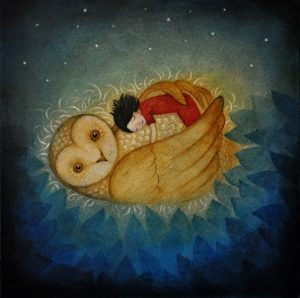 It was a very bad childhood for everybody, every member of the household, not just myself, I think. And I escaped it, barely, with years of trouble. But I did find the entire world in looking for something. . . . I got saved by poetry. And I got saved by the beauty of the world. . . .
It was a very bad childhood for everybody, every member of the household, not just myself, I think. And I escaped it, barely, with years of trouble. But I did find the entire world in looking for something. . . . I got saved by poetry. And I got saved by the beauty of the world. . . .
Mary’s poems touch us like the magical relationships we sustain with the breath. In describing how she offers her words in relationship to us she said:
. . . the creative process . . . I believe poetry — is convivial . . . — it’s very old. It’s very sacred. It wishes for a community. It’s a community ritual, certainly. And that’s why, when you write a poem, you write it for anybody and everybody. And you have to be ready to do that out of your single self. It’s a giving. It’s always — a gift. It’s a gift to yourself but it’s a gift to anybody who has a hunger for it.
In her book, Long Life, Mary asks:
What does it mean that the earth is so beautiful? And what shall I do about it? What is the gift that I should bring to the world? What is the life that I should live?
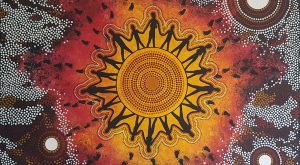 Perhaps it will be in our giving relationships that we save ourselves. As Mary says our creativity, our presence is a gift – to ourselves and to anyone who wants what we have to offer. Right now we can reflect on these questions . . . the beauty of the earth . . . our relationship to the world . . . what we have to offer . . . These are living questions that we can ask ourselves every day . . . like stars in the night sky they help us to navigate our lives.
Perhaps it will be in our giving relationships that we save ourselves. As Mary says our creativity, our presence is a gift – to ourselves and to anyone who wants what we have to offer. Right now we can reflect on these questions . . . the beauty of the earth . . . our relationship to the world . . . what we have to offer . . . These are living questions that we can ask ourselves every day . . . like stars in the night sky they help us to navigate our lives.
David Abrams suggests that we might use this time out from business as usual to deepen our relationships with who and what we hold most dear. He writes:
We can take rich advantage of this time to become more deeply of place, more deeply of the local earth; because even the empathy that we so richly feel in this time, . . . the empathy we’re feeling for other persons who are struggling to draw breath in 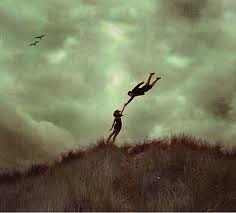 the local hospital, or even around the curve of the earth in other countries, and the empathy we’re also feeling for so many brothers and sisters afflicted by the many-decades-long scourge of police brutality, the empathy we feel even toward undocumented immigrants struggling in our own country as they’re squeezed tight in detention centers . . . I think that empathic solidarity, that deep, visceral solidarity we feel with others of our own kind, if we notice closely all these other human lives going on in other places around the world, we’ll notice that this human solidarity has the shape of a sphere. Because it is the spherical Earth, this vast, breathing metabolism we call Earth, that enables us to feel viscerally, to empathize with others, whether they be humans or elder humpback whales struggling with the plastics in our oceans.
the local hospital, or even around the curve of the earth in other countries, and the empathy we’re also feeling for so many brothers and sisters afflicted by the many-decades-long scourge of police brutality, the empathy we feel even toward undocumented immigrants struggling in our own country as they’re squeezed tight in detention centers . . . I think that empathic solidarity, that deep, visceral solidarity we feel with others of our own kind, if we notice closely all these other human lives going on in other places around the world, we’ll notice that this human solidarity has the shape of a sphere. Because it is the spherical Earth, this vast, breathing metabolism we call Earth, that enables us to feel viscerally, to empathize with others, whether they be humans or elder humpback whales struggling with the plastics in our oceans.
Our ability to feel as an other feels is part of our human mystery . . . Paradoxically, we become become more ourselves in our relationship with those lives in our circle of care. Right now we can reflect on those beings inside our circle . . . beings with whom we share breath . . .
Right now we can reflect on the diversity of beings, creatures, living organisms with whom we share breath . . . .Let them arise in our imagination . . . people, animals, plants . . . Let them be particular for you . . . let them fill your heart . . . As Mary Oliver says “whoever you are, no matter how lonely, the world offers itself to your imagination . . . calls to you like the wild geese, harsh and exciting — over and over announcing your place in the family of things.”
How are we changed, how are we moved when we recognize our place in the greater family? Perhaps this time of great pausing gives us an opportunity for growth . . . for healing . . . for opening our hearts wider. David describes this as
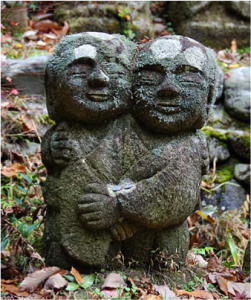 . . . .falling in love outward with the more-than-human earth . . . the deepest medicine . . . because if there’s anything that the local earth wherever you live teaches, it’s the need for diversity, the need for the whole, weird multiplicity of shapes of life and styles of sentience. . . to be interacting with one another in order for the land to be strong, to be healthy, to be resilient.
. . . .falling in love outward with the more-than-human earth . . . the deepest medicine . . . because if there’s anything that the local earth wherever you live teaches, it’s the need for diversity, the need for the whole, weird multiplicity of shapes of life and styles of sentience. . . to be interacting with one another in order for the land to be strong, to be healthy, to be resilient.
And so as we open our hearts and open our senses to the wider sensuous earth, I think we imbibe this deep teaching of diversity, of the need . . . for celebrating otherness . . . , radical otherness in our world, not looking to just shelter ourselves among those who think just like us or speak just like us or look just like us, but taking deep, new pleasure in otherness and strangeness. That’s the deep magic that I think is leaking back into human society today and into the more-than-human community as we humans fall in love outward.
Finally, we can encourage ourselves with one of Mary’s poems:
The Fourth Sign of the Zodiac, Part 3
I know, you never intended to be in this world.
But you’re in it all the same.
So why not get started immediately.
I mean, belonging to it.
There is so much to admire, to weep over.
And to write music or poems about.
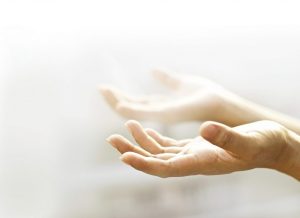 Bless the feet that take you to and fro.
Bless the feet that take you to and fro.
Bless the eyes and the listening ears.
Bless the tongue, the marvel of taste.
Bless touching.
You could live a hundred years, it’s happened.
Or not.
I am speaking from the fortunate platform
of many years,
none of which, I think, I ever wasted.
Do you need a prod?
Do you need a little darkness to get you going?
Let me be as urgent as a knife, then,
and remind you of Keats,
so single of purpose and thinking, for a while,
he had a lifetime.
